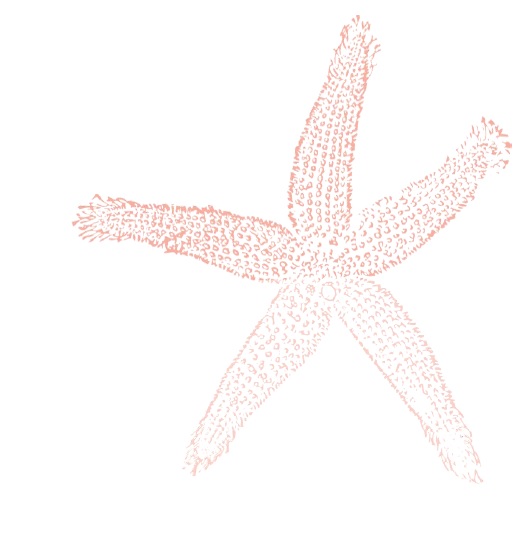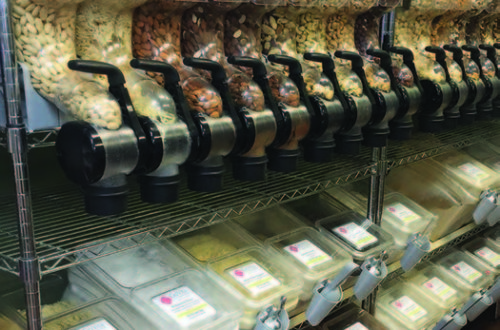Think about the little actions you take every day and how they add up.
I’m writing this just after the turn of the year, at the beginning of 2023. It’s the tradition to make resolutions in January. This year, I will work on ONE thing at a time. ONE is so much less daunting than the whole long list of “shoulds” – those things that we feel we should accomplish. A counselor I knew said “Don’t should on yourself.” I agree!
I am one of those individuals who always have lots of thoughts inserting themselves into their heads. Lately, the thoughts are about ONE:
• One planet home
• One choice that can make a difference
• One action at a time
• One thing I care about most
• One life
I used to lead discussion courses for the environmental education organization Northwest Earth Institute. Groups of 8-12 people would read about and then discuss a particular topic over 6-8 sessions. At the end, I would go back to ask for their feedback and evaluations. Folks invariably asked, “What can we do?” That’s how most people think about a problem; taking action makes us feel better than sitting on the sidelines hoping it will disappear. And just one action can make a difference:
The Starfish Story adapted from “The Star Thrower” by Loren Eiseley (1907-1977) Once upon a time, there was a wise man who used to go to the ocean to do his writing. He had a habit of walking on the beach before he began his work. One day, as he was walking along the shore, he looked down the beach and saw a human figure moving like a dancer. He smiled to himself at the thought of someone who would dance to the day, and so he walked faster to catch up. As he got closer, he noticed that the figure was that of a young man, and that what he was doing was not dancing at all. The young man was reaching down to the shore, picking up small objects, and throwing them into the ocean. He came closer still and called out “Good morning! May I ask what it is that you are doing?” The young man paused, looked up, and replied “Throwing starfish into the ocean.” “I must ask, then, why are you throwing starfish into the ocean?” asked the somewhat startled wise man. To this, the young man replied, “The sun is up and the tide is going out. If I don’t throw them in, they’ll die.” Upon hearing this, the wise man commented, “But, young man, do you not realize that there are miles and miles of beach and there are starfish all along every mile? You can’t possibly make a difference!” At this, the young man bent down, picked up yet another starfish, and threw it into the ocean. As it met the water, he said, “It made a difference for that one.”
Think about the little actions you take every day and how they add up. They might be actions that have a negative effect or a positive effect. Take some time to reflect on which type of impact your actions have. Keep on with the things that have a positive impact, like smiling at people and saying hello to your neighbors, shopping at your farmers market or local businesses, reducing your consumption, getting out in the fresh air, and taking your own bags to the grocery store.
Consider other choices you make and analyze their repercussions – they may be unconscious choices made out of habit. Oftentimes we don’t even know that what we are doing has any sort of significance, right? One thing that I have recently learned about is the harm that is caused to native birds and insects and, thereby, to humans, by planting non-native plants in our yards. The non-native plant species do not support the native creatures (see end of article*). Do not overwhelm yourself with too many projects or admonish yourself for not doing more. Just consider one thing at a time. For example, think of some issue that you care about, then start by doing one thing that brings about an improvement for the better.
My husband and I were concerned about reducing waste. Why? Because everything is made out of materials that are extracted from the Earth – trees, water, energy, minerals, and on and on – thanks in great part to the “growth” economy. And most of the stuff we buy ends up being thrown away. Only, where is “AWAY”? Our very first step was to eliminate paper napkins because why cut down trees to make napkins! And why spend money on something that’s used once?
For the last year or so, I have been noticing that individuals are expressing the opinion that climate change is the fault of corporations. Well, yes, they do have the largest ecological footprint, and they need to be held accountable. But that doesn’t absolve us consumers, especially when we keep supporting those corporations with our hard-earned dollars. Why would they change their practices if we keep them in business?
In order to know why a habit needs to be altered, we need to learn about the repercussions. There are so many sources of information about how to make beneficial changes. All you have to do is search online for “impacts of….”, keeping in mind that you want to use a reliable website.
Take some time to contemplate what you wish to do differently. Here’s a list of things that popped into my mind that I’d like to better understand the consequences of:
• Supporting local farmers
• How far my food is being shipped and at what environmental cost
• Reducing my food waste
• Palm oil production
• Speaking with people who have a different viewpoint
• Why there are so many unhoused people
• What resources are used to make the products I buy
• Eating out of plastic containers
• Buying bottled water
• Having bright lights on outdoors at night during bird migrations
Gosh, so many opportunities to make changes that will have a positive effect! All I have to do is search online to understand the influence I have on what happens because of the decisions I choose to make. And make ONE change at a time. Remember the starfish!

Betty Shelley
Betty Shelley is a Master Recycler (class #2), a former Metro Recycling Information Specialist, an Agent of Change, and the founder of Reduce Your Waste Project. Betty found Northwest Earth Institute in 1993 when it was founded in Portland. The NWEI discussion courses made her more aware of the choices we make as well as the consequences of those choices. Since 2006, Betty and her husband, Jon, have had just one 35-gallon can of garbage per year. The Shelleys offer the class “Less is More:Getting to One Can of Garbage a Year”.






